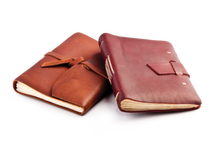 Ack! It's too scary! Ack! It's too scary!
Yes, this is going to be my case for the importance of journaling. For all of you thinking, "I'm not good at that and this is just going to make me feel guilty so I'm skipping it," let me start right off by saying that I SUCK at keeping a journal. I have never been able to do it consistently. I remember in my graduate Art of Ethnography class, our professor had us keep field notes on just one sense at a time ("This time when you visit your site, only write about what you hear," etc.) So many details zoom through my awareness so quickly anyway that I feel like it would take longer to write them down than it did to experience them. Adding more awareness of sounds, feelings, smells, and tastes only increased that feeling. So believe me, I know all too well what it's like not to journal at all because you're convinced you can't do it well! This is a post for the rest of us.
(If you are naturally gifted at journaling, I hope you recognize that it is indeed a gift, and you might ponder where you need encouragement and a little push -- is it revisiting your words to learn from them? Is it doing something with the journals you write?)
Many others have written about the importance of journaling to access the creative mind, about how writing by hand does things typing won't -- I certainly know that I never would have finished my master's thesis if I hadn't been writing morning pages as described in Julia Cameron's The Artist's Way. And for those of you engaged in documentary work, great advice already exists on why field notes are important and how to write them, including the importance of both descriptive and reflective content. So I'm not going to repeat their advice; just go read them. Instead, I want to argue for my three most passionately felt reasons you should keep a journal or write field notes. And the first is really simple. Because you will not remember this stuff later.
Because You Won't Remember Whether it's a reflective insight about your self or your work, a great project realization (the perfect follow-up question, the answer to your plot structure quandary), or rich, juicy details about an experience, they may seem obvious or seared in your memory forever, but trust me. Just like my friend Carol, in two weeks, you will only remember that you had the thought, but not what it was, unless you write it down! You remember the story of Samuel Taylor Coleridge, who after he was interrupted in the recording of the dream that would become the poem Kubla Khan, could not remember the rest of the story? Yeah, well, learn from his mistake. When you read a fantastic piece of writing, whether a poem or a documentary essay like this excerpt below, do you ever marvel at how they crafted such rich detail and scene-setting language? Almost always, it was in their notes. Permanent, blood-like splotches stain my hands, radiant against the green, fruited plains – a tell-tale sign that my summer days are spent in the fields. Though each piece of fruit means a strawberry pie, a strawberry smoothie, a strawberry short cake to someone else, to me each means a penny towards next year’s tuition, this week’s food, my sister’s wedding dress. . . . Down the row, a man lays on his back, eyes covered. His daughter leans against his knees, his son picking next to him. I turn back to my work, and stand up, bucket in hand (how many today?), to get my timecard punched. I wipe my stained hands on my pants. -Laura Valencia, from "America the Beautiful, Revisited."
Because Patterns Take Time to Emerge
In an Oral History course in graduate school, we focused on life review interviewing. It was the first time I had done repeated interviews with one person over a period of time. Every few weeks, I drove up to a older relative's house in the mountains north of Asheville to complete my class assignments. I hadn't noticed in the course of any particular interview, but as I was reviewing my field notes, I noticed that the topic of houses kept coming up. When she was a child her family had had to move because the city used eminent domain to take their house for a development project. The catalyst for her marriage ending was her despair over the house they were building. There were many stories that involved houses in some way throughout the different chapters of her life. I mentioned what I'd noticed to her the next time we met, and the theme of houses ended up being something we explored together at length. (It was also the topic of my final paper for the class.) She also had never noticed this thread through her life story, and I wouldn't have either, if I hadn't been taking notes. This is true in your reflections about yourself as well. We are trained to think in terms of single big "a-ha" moments, but more often, I think insights come as little "I wonders." Sometimes it takes several repetitions before you recognize that fleeting thought or question as something that might change your life. Because A Relationship Exists Between Knowing Yourself and Knowing the World When I was trying to finish my master's thesis, I was well and truly stuck. I had read about Julia Cameron's method of writing morning pages (three pages of hand-written, stream-of-consciousness free writing) and decided, as my grandmother used it say, it couldn't hurt. Many mornings my pages were full of sentences that went something like: "This will never work. Why am I doing this? If I spent this much time actually writing my thesis instead of these pages, I'd be done by now!" Eventually, what started coming out is how much my perfectionism (and all its accompanying relationships to shame and fear of failure) was keeping me from making progress. The biggest obstacle to getting my work done wasn't in the work, but in myself. I've found this is true most of the time when my students get stuck as well. If you're thinking, I'm not interested in all that navel-gazing introspection stuff; I just want to:
Also, your journaling can help you notice unconscious biases, expectations, or needs that may be impacting your work. In documentary work, practitioners who strive for objectivity sometimes see introducing the personal as inappropriate. But ironically, acknowledging your subjective presence and exploring it fully through your field notes and other means can actually increase the objectivity of your documentary piece. Not examining the personal does not make it go away; it just makes you unaware of where and how it is present. This is the reflective part of journaling or field notes, and it is crucial to doing good work.
0 Comments
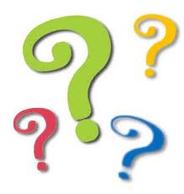 Bill Nichols calls documentary films that ask questions about the very act of documenting “reflexive documentaries.” We tend to think of reflexive work posing questions like “Do I have the right to tell someone else’s story?” or “Who should get to say what it means?” Often in reflexive documentaries we hear the voice of the documentarian posing these questions that relate to relationships with those documented and issues of representation. Sometimes we see documentarians become characters themselves. But there is a very personal and inward component to reflexivity as well. You can engage in reflexive documentary work without the end product being a reflexive documentary. And I would argue that whatever sort of work you're engaged in will improve if you practice reflexivity. Let’s unpack that a bit. The word “reflexive” originated as a grammatical term, meaning that the action of a sentence happens to the person or thing that does the action. (“I wash myself.”) In social sciences, reflexive has taken that sense of how our actions reflect back onto ourselves to mean paying attention to the effect of the presence or personality of the investigator on what they are investigating (from the Oxford English Dictionary). Here’s the idea: you will affect the work you do merely by being you and by being present. Your only choice in the matter is whether to deny or ignore that reality, or to actively include it in your documentary practice (or any other work you do). 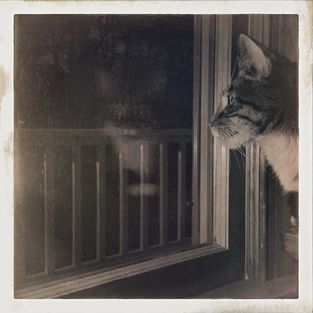 Photo by my friend (and former student) Michael Palko, photographer-in-residence, Oakwood Cemetery in Raleigh, NC. Photo by my friend (and former student) Michael Palko, photographer-in-residence, Oakwood Cemetery in Raleigh, NC. Because the word “reflexive” sounds like “reflective,” people sometimes think of that as its definition, and there’s definitely a connection there, both in the sense of a reflective surface showing yourself back to you, and also in the sense of pausing to reflect--to go within, to contemplate. Somewhat ironically, the word "reflexive" has also come to mean what you do without conscious thought, based on its root “reflex.” I think all of these play off each other pretty tellingly – if you don’t spend the time being reflective, you are not likely to engage in reflexive work (in the sense of honestly investigating, acknowledging, and owning how you and your presence affect your documentary work). But you are very likely to engage in reflexive work (in the sense of work you do by reflex, without the benefit of the insight and sometimes challenge that comes from having compassionate curiosity for yourself and your impact on your work.) I want to add one more component to this concept of reflexivity. Not only do you affect your work, but your work also affects you. Fellow folklorist Michelle Lanier and I once taught a whole course called The Inner Journey of Documentary Work. I still use that expression, and argue that you ignore that inner journey at your peril. There are reasons you are drawn to a topic that you may not even know consciously. Your personal relationships and experiences can stir unexpected emotion at what you thought would be an easy documentary decision. Where you get stuck in the process and can’t seem to move forward often relates much more to your own story than to the one you're telling in your documentary. When I teach documentary classes, some students readily embrace the importance of the inner journey. Others really struggle, or outright rebel against the idea of introspection. (Isn't it interesting that as documentarians we ask other people to tell us their personal stories, but don't want to expose our own?) Over the last decade plus of teaching, former students as well as colleagues have told me stories of how attending to their inner journey has paid off . . . and of how they have been blindsided by ignoring it. When I coach someone toward finishing a project, we often find that the biggest stumbling blocks are internal, not external. You really will do a better job of telling someone else's story if you pay attention to your own. If you want help learning to have compassionate curiosity, or planning your own inner journey, let me know! Thanks to Michael Palko for contributing photos for this post from his Instagram feed. A Duke University Informatics instructor by day, and a photographer by passion, Michael won Best in Show at Duke's 2016 Employee Art Show, and is photographer-in-residence at the historic Oakwood Cemetery in Raleigh (see that great Instagram feed here).
Find his articles at Candid Slice, and follow him on Twitter. |
Joy SalyersCounselor/Coach, Consultant, Folklorist, High Priestess of Where Things Meet and the Places Between Categories
All
|
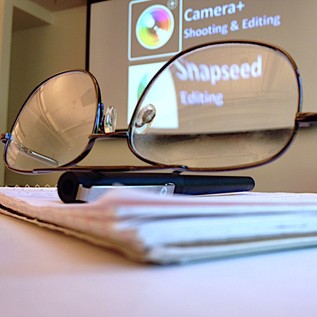
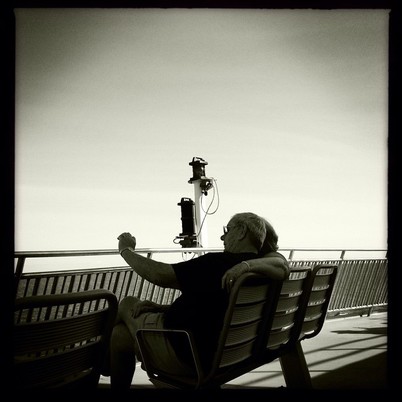
 RSS Feed
RSS Feed